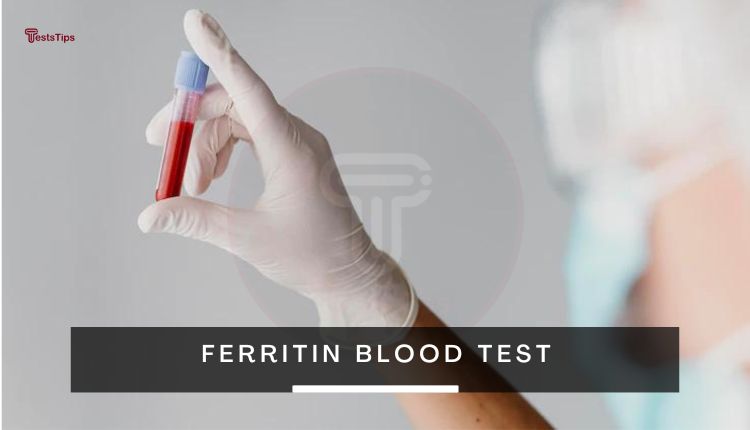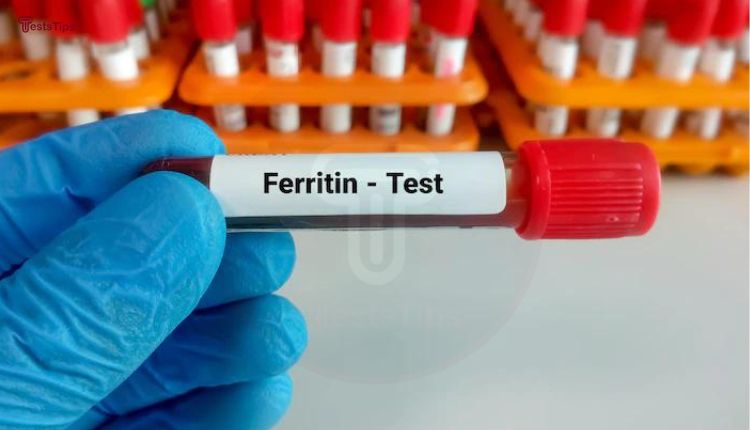Ferritin blood test, Preparations and Results
Ferritin blood test
Ferritin blood test. Find out what the ferritin test is, why it’s important for monitoring your iron levels, and how to get the most accurate results from it?

Table of Contents
Ferritin blood test is a simple blood test that helps doctors determine whether a patient has low iron stores. what a ferritin blood testing can tell you? how do you best monitor your iron levels? and why it’s important for monitoring your iron levels?
What Is a Ferritin Blood Test?
A ferritin blood test is a simple and straightforward procedure used to measures the level of ferritin, ferritin is a protein that stores iron inside the cells, in your body, Iron is necessary for the formation of healthy red blood cells. Red blood cells are responsible for transporting oxygen from your lungs to the rest of your body, Iron is also necessary for healthy muscles, bone marrow, and organs, including child brain development. If there isn’t enough iron available, the red blood cells will become smaller and less efficient at carrying oxygen. This leads to fatigue, weakness, pale skin, and shortness of breath.
This test helps detect an iron deficiency or an iron overload by measuring the level of stored iron. By determining the amount of ferritin in your blood, your doctor can identify any potential problems early on and help you maintain normal levels of stored iron.
There are two main types of blood ferritin tests: serum ferritin and plasma ferritin. Serum ferritin measures the level of iron stored in the liver. Plasma ferritin measures the levels of iron in the bloodstream. Both tests are used to diagnose iron deficiencies.
Who Should Have a Ferritin Blood Test?
A ferritin blood test measures the amount of iron stored in your body. It is important for:
- People with anemia, iron deficiency or other conditions related to low iron levels to have their ferritin levels checked.
- Women who are pregnant, breastfeeding or taking birth control pills, to ensure that they are not at risk of developing anemia.
- People who eat a vegetarian diet, as may be at higher risk for low iron levels due to a lack of dietary sources of iron.
- Liver problems (much of the ferritin in your body is stored in your liver.)
- People suffer from chronic diseases such as kidney disease and diabetes, as these conditions can cause abnormal levels of this protein in the blood.
- Hemochromatosis is a condition in which your body has an excess of iron (also called iron overload).
- Restless legs syndrome is characterized by tingling or burning sensations in the legs that may be caused by a deficiency in iron.
- Chronic (long-term) conditions, such as cancer, kidney disease, and autoimmune diseases, should be monitored.
- Adult Still disease (also known as adult-onset Still disease or AOSD) is a rare disease characterized by joint pain, fever, and rash, as well as elevated ferritin levels.
What is the purpose of a ferritin blood test?
This test may be required if you have symptoms of iron deficiency or excess.
Too little iron causes the following signs:
- Breathing difficulty
- Weakness or exhaustion
- Dizziness
- Arrhythmia (a problem with the rate or rhythm of your heartbeat).
Too much iron can cause a variety of symptoms, which tend to worsen over time. Symptoms could include:
- Weakness or exhaustion.
- Pain in the joints, most commonly in the knees or hands.
- Loss of sexual interest or erectile dysfunction (ED)
- Pain in the abdomen (belly).
- Skin color change, which may appear grey, metallic, or bronze.
You may also require this test if other blood tests reveals that you have low hematocrit or hemoglobin concentration.
How to Prepare for the Test

It is important to prepare properly for the test. Your healthcare provider may ask for fasting (not eating or drinking anything except water) for 12 hours before the test, which is usually done in the morning. You should also inform your doctor of any medications or supplements you are taking that may affect your iron levels. After the blood sample has been taken, you can resume eating and drinking as normal.
Related: ALT – SGPT test; preparation and result interpertation“
Results of the Ferritin test
What If My Results Show Low Levels of Ferritin?
If you have a low ferritin level, your doctor may recommend taking iron supplements or making dietary changes to increase your intake of foods high in iron. They may also want to do additional tests to rule out other causes of low ferritin such as chronic inflammation or certain medical conditions.
Treating the underlying cause can help restore healthy ferritin levels and improve symptoms associated with anemia and other conditions related to low ferritin levels.
What If My Results Show High Levels of Ferritin?
If your results show a high level of ferritin, it may point to alcohol consumption or iron overload. Iron overload is most commonly associated with hemochromatosis, a condition where the body absorbs and stores too much iron. This can damage organs such as the heart, liver, pancreas, and joints.
Treatment for this condition usually involves reducing the levels of iron in the body through diet or medication. Your doctor can help you determine if you have an iron overload issue or if other problems are causing high ferritin levels.
Foods That Are High in Iron
A ferritin blood test is used to measure the amount of iron stored in your body. Eating foods that are high in iron can help maintain healthy ferritin levels and prevent iron overload.
Examples of foods high in iron include:
- Lean red meats.
- Dried or canned beans and peas.
- Dark leafy greens such as spinach and kale.
- Tofu
- Nuts and seeds
- Fortified cereals.
- Eggs.
- Oysters and other shellfish.
- Vitamin C-rich foods like citrus fruits.
- Calcium-rich foods such as dairy products or soy products.
By including these nutritious foods in your diet you can ensure you are meeting your daily needs for dietary iron while also maintaining healthy ferritin levels.
Conclusion
Ferritin blood test is currently the most sensitive and specific of the various blood tests available to diagnose iron deficiency anemia.
